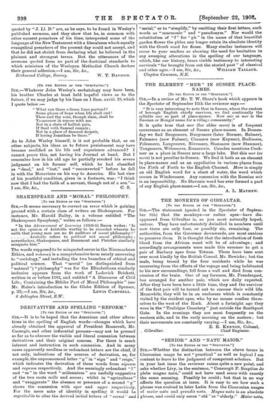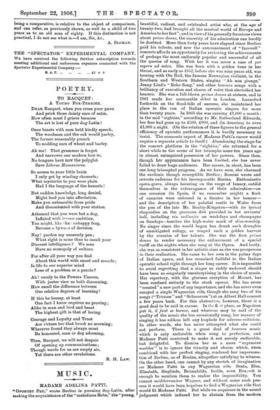"SENIOR" AND " NATU MAIOR."
[TO THE EDITOR OF THE " SPECTATOR.")
SIR,—Whether the distinction between the above terms in Ciceronian usage be not " practical " as well as logical I am content to leave to the judgment of competent scholars. But in your last issue the reviewer raises quite a new point, and asks whether Livy, in the sentence, " Consurgit P. Scaptius de plebe magno natu," could not have used senex with exactly the same meaning. Possibly he could ; but that in no way affects the question at issue. It is easy to see how such a phrase was evolved in later Latin from the Ciceronian images of limier natu and grandis %atm • Magna natu is an absolute phrase, and could only mean "o14 " or " elderly." Maier natu,
being a comparative, is relative to the object of comparison, and can refer, as previously shown, as well to a child of two years as to an old man of eighty. If this distinction is not practical, I do not see what is.—I am, Sir, &c., A. SLomax.







































 Previous page
Previous page